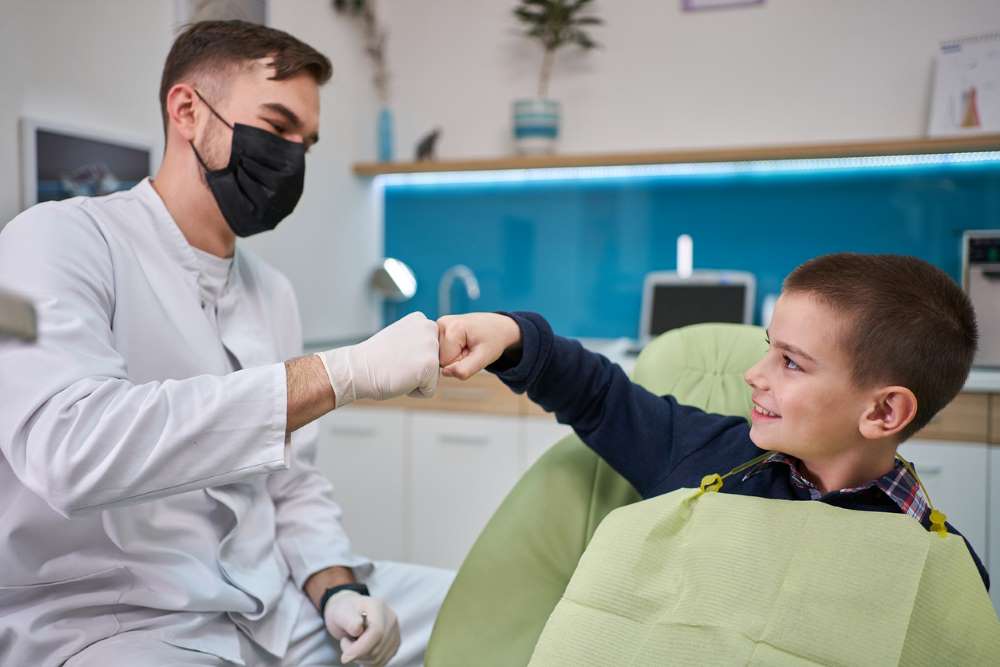
You try your hardest to convince your kids to brush and floss twice a day. They might even listen to you every now and then. However, accidents and emergencies still happen and you’ll have to act quickly when they do.
If one of the following incidents occurs or you notice symptoms, seek immediate medical attention or get your child to the dentist ASAP.
1. Chipped, Broken and Missing Teeth
Little kids put everything in their mouths, including dangerous objects like rocks and marbles. If they manage to break or chip a tooth in the process, you must visit a dentist right away. Otherwise, they could cut their lips or mouth on a jagged tooth or you could lose the tooth fragment that broke.
It’s also possible for your child to accidentally knock out a tooth while roughhousing with other kids, playing sports or falling. If this happens, try to find the tooth and place it back in the hole until you can get to the dentist. Alternatively, you can store it in a glass of whole milk to prevent it from drying out and preserve it for reinsertion.
Sometimes, although it's more common with adults, there are cases when all teeth need to be replaced. If that happens, check out All on 4 dental implants cost Melbourne to know how much it can cost you.
2. Accidental Bites
Children also tend to chew carelessly and can accidentally bite their tongue, lip or inner cheek. Of course, a bitten lip or tongue can be painful and cause inflammation and bleeding. If you can’t get the bleeding and pain under control, it’s best to take your little one to the dentist ASAP.
In the meantime, clean the wound with water and apply a cold compress. Instruct them to keep the gauze or cloth there until you can get to the dentist. This treatment method will also ensure the tongue doesn’t move and further damage the wound.
3. Cavities
Just like adults, kids can be at risk for tooth decay, especially those with a sweet tooth or carb cravings. In fact, 25% of kids between two and five experience some form of tooth decay. If you don’t treat cavities, they can eventually reach the tooth’s inner pulp and cause extensive damage that can cost you hundreds.
Of course, detecting a cavity can be trickier than simply noticing a bite or missing tooth. However, you may notice symptoms like lethargy, swelling, tooth sensitivity and dark or light spots on the teeth if your child is suffering from tooth decay.
4. Abscesses
Some parents don’t notice a cavity until it has become an abscess. At this point, the tooth pulp will have become infected, spreading bacteria to the bone and tissue below. Eventually, abscesses can lead to sepsis, an extreme immune response that can be life-threatening. An alarming one-third of those who develop sepsis die. Meanwhile, survivors are left with life-altering effects, including chronic pain and amputations.
Therefore, it’s imperative you schedule an appointment with your pediatric dentist at the first sign of a cavity or abscess. Often, they’ll prescribe antibiotics to combat infection and inflammation. However, they might also drain the infection to treat more severe abscesses and accelerate the recovery process.
5. Toothaches
A toothache is one of the most common reasons to take your child to the dentist. Typically, toothaches are a sign that something is wrong and their mouth may require immediate attention. Therefore, if your child complains of tooth pain, it’s important to inspect their mouth to try and determine the source.
Often, something sticky like candy or a popcorn kernel will lodge itself in their gums or between two teeth and cause pain. Luckily, floss typically solves this problem. However, if your child is experiencing toothaches from worn tooth enamel or teeth that are coming in crooked, you’ll need more than floss and toothbrush. Call your dentist if you suspect a more complicated issue so they can receive immediate treatment.
6. Broken Jaw
If your kid breaks their jaw, you’ll know it. Whether you watch them collide with another child or they take a blow to the face, you’ll soon notice swelling and bruising. Your little one may also begin to complain of numbness, tenderness and stiffness, all of which can point to a broken or fractured jaw bone.
Of course, if your child has sustained such an injury,you must take them to the dentist or the emergency room immediately. Otherwise, their jaw will heal incorrectly and make eating, drinking and talking difficult. Treatment will also prevent the risk of developing an infection, dental decay and long-term conditions like chronic pain and arthritis.
Keeping an Eye on Those Chompers
Kids won’t always tell you when they’re experiencing pain or discomfort, especially if they think they’re at fault. Therefore, it’s wise to establish a safe environment at home and encourage open dialogue about emotions, feelings and sensations. This way, they’ll be more comfortable and more apt to tell you when they’re suffering.
You can also protect your little one’s health by inspecting their teeth every now and then. Keep instilling good dental hygiene habits and feed them healthy food. With a little luck — and obedience — you can avoid more serious health issues and keep their teeth pearly white.



























